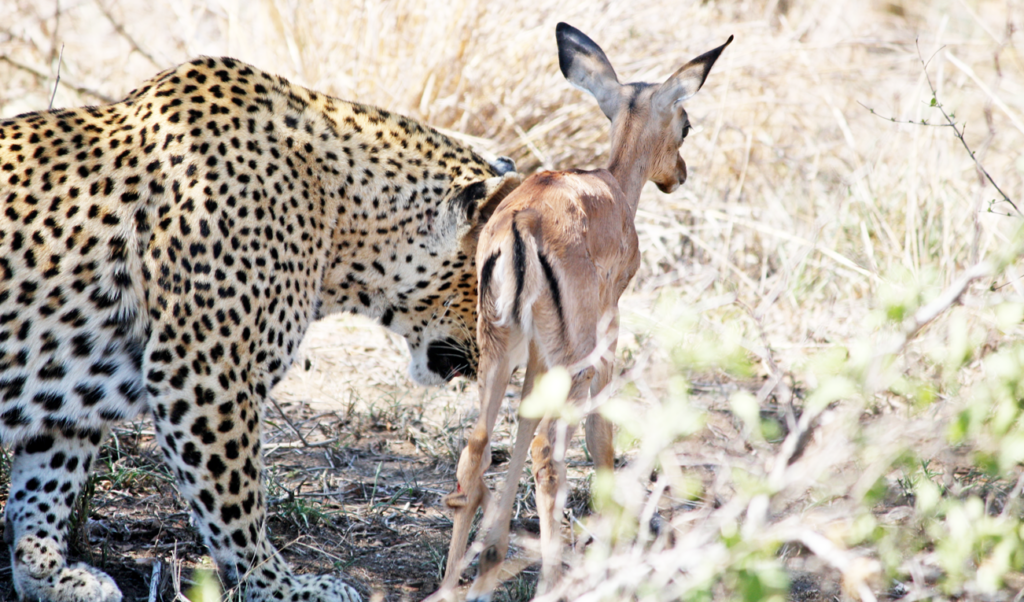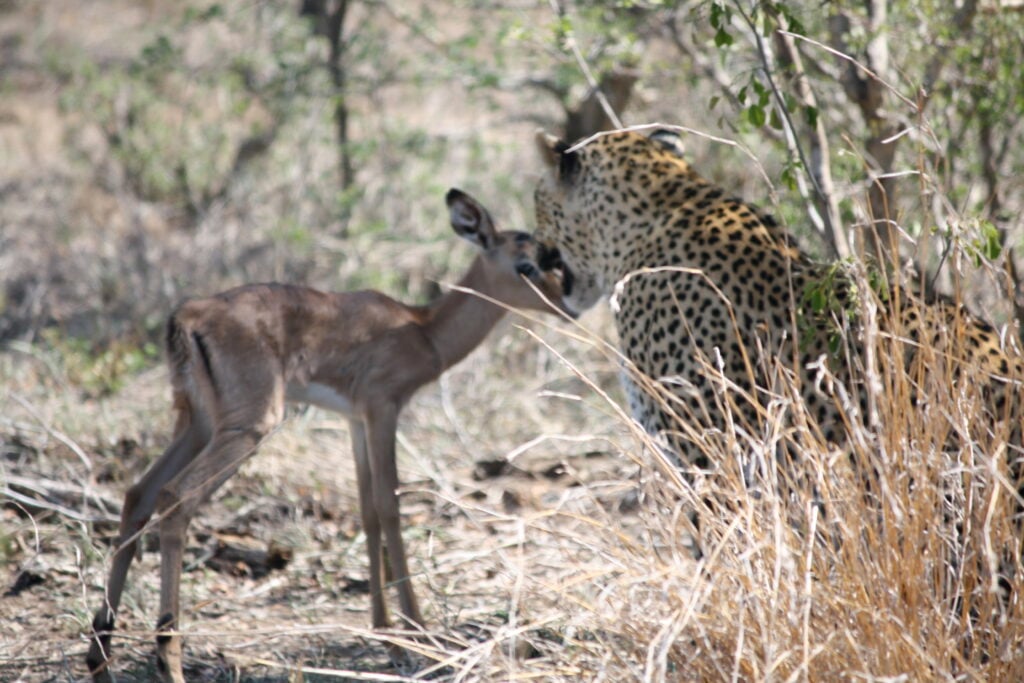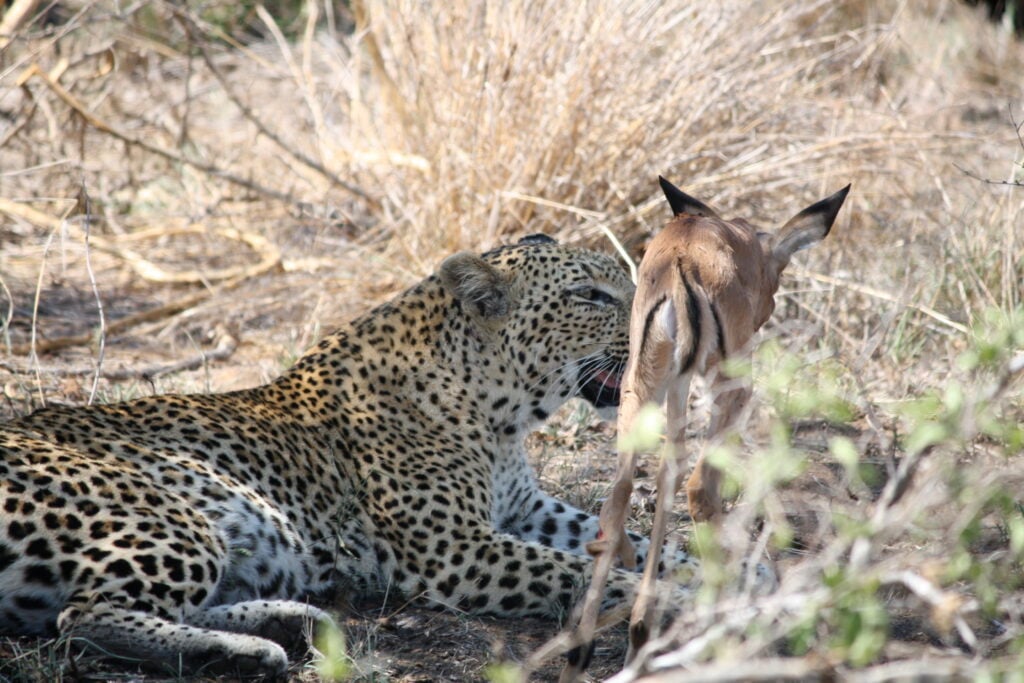
This miraculous sighting will make you do a double-take. That’s because seeing a leopard lie down next to an impala seems to go against all the laws of nature.
Watch The Sighting:
Yet, this is exactly what Patti witnessed when she filmed this dazzling moment. The incredibly rare video was taken near the Sabi Sands in the Greater Kruger National Park in South Africa.
This unusual moment causes the viewer to ask many questions, one of them: How is this even possible?
Leopard Spotted ‘Taking Care’ Of Baby Impala
While incredibly rare, leopards (and other predators) have been documented showing unexpectedly paternal or maternal behavior toward prey animals, including baby impalas and other young antelopes.
These events are highly unusual, but they give fascinating insight into animal behaviour.

In some rare cases, leopards have been observed gently interacting with impala calves, licking or lying near them without attacking.
Get our Best Sightings as they Come in
These moments usually don’t last long as the instinct to hunt eventually kicks in. However, the behavior suggests complex emotional responses.

Impala Shows No Signs Of Fear In Leopard’s Presence
This leopard watched over the young impala, which showed no signs of fear. The baby animal stood close to the predator, and they even appeared to bond, with nose nudges and gestures of affection.

Experts believe that behaviours like this may be misfires of maternal instincts, especially in females who have lost their cubs or are hormonally primed for caregiving.
They theorise that the young animal’s appearance and behaviour may trigger caregiving instincts. Its crying, helplessness, or small size might appeal to a deeper maternal instinct within the animal.
Some experts think this behaviour might even be related to play or curiosity in younger predators.

The impala continued to graze near the predator, somehow feeling secure in its presence.
It remained lying down and apparently docile. To the observer, the leopard and impala appear to be enjoying their interaction.

A Rare Anomaly That Doesn’t Always End Well
According to studies, these incidents rarely end well. While stories of leopards ‘adopting’ young bucks or other animals are emotionally compelling, the outcome is usually grim. This is because most predators eventually abandon or kill the young prey, especially if hunger overrides empathy.
That said, the fact that these rare moments happen at all shows that even instinct-driven animals may have moments of emotional or behavioural complexity.
It is hard to say how this moment panned out. One can only hope that the leopard lost interest and eventually moved away, before its hunger instincts kicked in. Or that the small buck came to its senses and recognised the calm presence lying beside it was in fact a deadly predator, driven by instincts beyond its control. While one of these instincts is the maternal or paternal instinct, another is the hunger instinct.
Patti’s video clip testifies to the complexity of nature and how animals’ interactions are anything but simple. Also, how much we have to learn about the intricacies of life around us.
